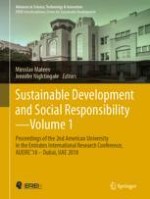2020 | OriginalPaper | Buchkapitel
Banking System in the MENA Region: A Comparative Analysis Between Conventional and Islamic Banking in the UAE
verfasst von : Fiona Mrad, Miroslav Mateev
Erschienen in: Sustainable Development and Social Responsibility—Volume 1
Aktivieren Sie unsere intelligente Suche, um passende Fachinhalte oder Patente zu finden.
Wählen Sie Textabschnitte aus um mit Künstlicher Intelligenz passenden Patente zu finden. powered by
Markieren Sie Textabschnitte, um KI-gestützt weitere passende Inhalte zu finden. powered by
